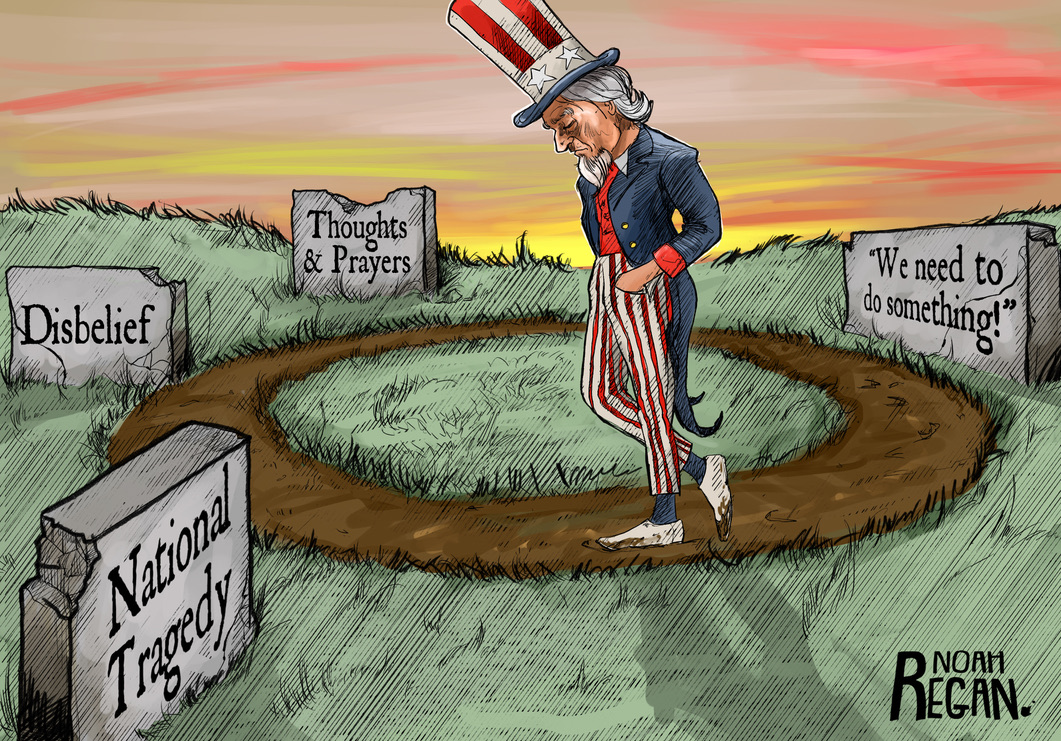The largest merger announced so far in 2022 is the combination of the $2.8 billion Cap Com FCU with the $5.6 billion State Employees FCU, both in Albany, New York.
Cap Com’s web site has a link promoting the merger. It includes a video from the President and Board Chair, FAQ’s, merger updates and a description of the voting process.
In these explanations and in the required Member Notice dated April 8, 2022, the justifications (excerpts below) are general and rhetorical.
The combination will result in a different brand and new name which will operate state wide. The site even highlights a critical benefit members will be able to keep: their free checks and coin counting machines!
There is a link to nine merger myths which are then dismissed with a contrary assertion. For example:
Myth #6: Bigger is not better.
Often, that’s true but having more resources will allow us to do more for members, employees, and the community. This includes enhancing technologies that make banking affordable and easy.
In all the communications, both required and marketing the decision, there is a complete absence of specific benefits except those achieved by adding together existing branch, ATM, video tellers and other operational access already in place. No savings or loan rate benefits are presented, nor any mention of new products or services.
The March 31, 2022 Financial Reports
While State Employees is almost twice as large as Cap Com, the most recent call report suggest it is confronting headwinds. Total first quarter revenue declined and net income fell 50% to $6.8 million from the 2021 first quarter. Cap Com’s first quarter net was $7.1 million.
State Employee’s loans are just 51% of assets. The investment portfolio shows a $105 million decline in market value. The net worth ratio has barely increased over the past 12 months, going from 6.8% to 7.06% at March 31 of this year.
State Employees would be subject to NCUA’s RBC net worth requirement. Whereas Cap Com’s 9.86% net worth would allow them to elect the simpler CCULR capital compliance option.
35 Years as CEO
State Employees President Michael Castellana has been CEO since April 1988, or 34 years and two months. From the Member Notice: As part of the merger agreement Chris McKenna, Cap Com CEO/ President would become President and Castellana CEO of the new credit union.
The board chair of Cap Com will become the chair of the combined entity. This and the other circumstances give the impression that this merger is a CEO succession plan for the larger State Employees.
This “solution” will cost Cap Com members their independent, locally focused, sound organization.
Misleading and incomplete statements about the event are a suspect foundation for a new credit union launch. It erodes trust in leadership. It undermines promises about the future.
If that is the intent, it should be disclosed to Cap Com members. It puts a very different framing for motivation and outcome. For in this instance, the asymmetries in size, performance results, and financial situation suggest the smaller credit union is rescuing the larger.
Members sense that something does not compute in this decision by Cap Com’s board and CEO to end their independent charter. They, and even a SECU member, have made their views known on NCUA’s website.
Members’ Comments on the Merger Proposal
- I have grave reservations about this merger. There was not enough due diligence to provide a transparent account of why two thriving institutions must merge, and members have not been given enough complete information to make an informed vote.
I think that this is a disservice for members and the community and I would urge you to reject this merger as not enough was guaranteed to members, and the board of directors (which includes the proposed entity’s CEO) is not making decisions that favor employees or members of either credit union.
Thank you for your time. (Jennifer Smith)
- Good afternoon,
I have grave reservations about this merger. There was not enough due diligence to provide a transparent account of why two thriving institutions must merge, and members have not been given enough complete information to make an informed vote.
I think that this is a disservice for members and the community and I would urge you to reject this merger as not enough was guaranteed to members, and the board of directors (which includes the proposed entity’s CEO) is not making decisions that favor employees or members of either credit union. (Justin Williams; similar comment from Paul Lenz))
- I am a Capcom account holder and I have reservations about this merger. This is being pushed down our throats and we are not being given full information to make an informed decision. Both credit unions are doing well and the merger is not needed. They have given us vague promises about “efficiencies”, while downplaying that there will be negatives.
There must be, because mergers result in lowered competition, leading to reduced benefits, increased costs, decreased customer service, layoffs, etc. If they want to say this will not happen, then I ask, then how do these “efficiencies” happen?
Please do not approve this “merger.” ( S Price)
- I am leaning heavily against this merger. I maintain 14 separate accounts at CapCom and just feel the information that has been released is spotty at best, and reads as if it came from a marketing company. The special member meeting is scheduled for twenty minutes before online voting ends (24 hours before mail-in ballots must be received).From the notice that was sent to CapCom members: “Both credit unions are flourishing, so this is a ‘merger of opportunity’ with the ongoing needs of the members at its core.” What are these needs? Where have they been expressed?What about:
Higher nickel and dime fees (a SEFCU speciality – Google “Story vs SEFCU”)?
What happens if the merger is voted down?
Is CapCom over-extended on its loans (a popular theory floating around)?
Sorry. There are way too many issues here and very little substance offered for anyone to make an educated decision. (David H)
- As a member of Sefcu for ove 15 years, I am appalled that this so called merger of equals is going to be allowed. It was announced last July as a merger of equals. If that is the case then not only should the capcom membership get to vote but so should the Sefcu members. You can’t have a merger of equals if it’s only going to get voted on by one side . I also would like you to look into the multiple conflicts of interest on both sets of leadership. I truly don’t feel that the members of both institutions are truly going to benefit in any possible way from this proposed merger. (Russel Kuhls)
MyAssessment
Despite the asserted benefits, this looks like a merger of necessity to extricate State Employees from a downturn.
The members of Cap Com correctly see this as not in their best interests.
With a new name and brand, a state wide operational commitment, a below average combined capital ratio, and required conversions from different data processing and other third-party providers, this merger is a recovery operation not a launch to the future. It will be costly.
State Employees could recruit Cap Com’s CEO to be Castellana’s heir. However bringing Cap Com’s resources to the project appears to be throwing good money after bad.
Cap Com members are being asked to rescue State Employees members in a time of heightened economic uncertainty.
Where Has NCUA Been?
The members of Cap Com are also covering for a lack of effective supervision by NCUA. It was NCUA’s Chair who in January asserted the need for succession planning by proposing a new rule. Merging Cap Com to provide the leadership to turn around State Employee’s trends is the exact opposite of the rule’s intent.
This rescue requires that members vote to approve and then exercise patience, of uncertain duration, to endure numerous technical conversions for operational integration.
Whatever the outcome, credit union members are being tasked again to pay for the shortfalls of the regulator in its examinations and assessments of the management and board performance of State Employees, that is the M in CAMEL.
References:
From the Member Notice on NCUA’s Website.
No specific member benefits are provided.
Reasons for merger: The Board of Directors of CAP COM unanimously concluded that the proposed merger with SEFCU is desirable and in the best interests of the members. Although CAP COM thrives today, there is no guarantee it will be immune to the ever-increasing competitive pressures that can blunt success in the future. Throughout the United States, credit unions face immense challenges from digital only banking services, industry disruptors, and powerful mega banks. This merger will increase operating efficiencies and offer the potential to expand products and services for credit union members sustainably over time.
Joining forces with SEFCU is the ultimate collaboration. This merger will benefit members, employees, and the communities across the combined organization’s new, expanded footprint. The merger would capitalize on the cooperative spirit of the two credit unions, their distinct strengths, talent pool, and significant financial resources. It is from a position of financial strength that CAP COM seeks to merge with SEFCU. Both credit unions are flourishing, so this is a “merger of opportunity” with the ongoing needs of members at its core.
Changes to services and member benefits: Banding together, CAP COM and SEFCU can expand affordable, easy-to-use, life-enhancing services. A unified credit union would possess the scale necessary to deliver greater value to members – beyond what CAP COM and SEFCU could deliver individually.
The fiscal strength, and safety and soundness, of the combined organization paves the way. The expanded and diversified balance sheet and membership composition will reduce financial and membership concentration risk and increase opportunity. The combined capital of the two credit unions, once merged, is estimated to be approximately $702 million, cushioning against unforeseen economic downturns or other financial challenges.
The merged organization would have the largest branch presence of any financial institution in the Capital Region of New York State. In terms of number of members, it would rank among the largest credit unions in New York and the top 30 in the United States.
Through this merger, CAP COM members will realize gains in excellent rates, favorable pricing, and innovations that enhance their banking experience and financial wellness, thanks to the operating efficiencies of a larger organization that reduces expenses and generates revenue. The personalized service for which CAP COM is known will benefit from a larger membership across New York.
Making banking more convenient, affordable, and easy is a primary goal of the combined organization. The merger would enable members to gain access to more branches along commercial corridors and in diverse neighborhoods across the Capital Region and upstate New York (including areas where members prefer to bank today). More surcharge-free ATMs throughout the United States would also be available, along with more robust call center services and the convenience of 24/7 digital banking. Below you will find the retail expansion opportunities you will benefit from through this merger.
- Capital Region, Central NY, Western NY, Southern Tier
- 61 full-service branches (CAP COM currently 12) and two mobile branches
- 27 video tellers (CAP COM currently 0)
- 130 on-site ATMs (CAP COM currently 13)
- Nationwide 85,000 surcharge-free ATMs (Allpoint®, CO-OP) More than 5,600 shared branches
Along with enriching the service offerings and benefits for members, this merger will create countless opportunities for employees to hone their skills, apply their talents, and grow in their careers with the combined organization, which will ultimately benefit members. All staff of both the merging and continuing credit unions will be offered continued employment following the completion of the merger.
Members of CAP COM will be well represented in governance of the combined organization. The Chair of the Board of Directors of legacy CAP COM will assume the role of Board Chair in the new credit union. In addition, Board members of the former CAP COM will occupy seven of 15 total seats on the newly expanded Board, along with committee assignments. As stewards of the unified credit union’s mission, fiscal soundness, and strategic direction, the Board of Directors will possess decades of institutional knowledge and continue to be advocates for members.
Finally, community outreach with generous financial support are hallmarks of both credit unions. Larger philanthropic efforts, and a greater number of employee-volunteers statewide, will support a more sustainable and equitable future across communities where members live and work.
Merger-related financial arrangements:
Two CAP COM executives, Chris McKenna, President & Chief Executive Officer, and David Jurczynski, Executive Vice President & Chief Financial Officer, are covered by a collateral-assigned split dollar life insurance plans (the Plans) that were established in 2019, prior to any discussion of merger with SEFCU. The Plans include a standard “change in control” provision requiring that, given certain circumstances including a merger as proposed to the membership herein, any unvested benefits that may be subject to a vesting schedule under the Plans, become 100% vested on the merger effective date.
Footnote:
More information on CapCom’s business strategy here:
(Opening paragraphs) For the past three years, CAP COM Federal Credit Union ($2.6B, Albany, NY) has been honing its abilities to reduce risk and maximize reward — taking care to not throw out the BABI with the bathwater.
“BABI” is shorthand for the business analytics (BA) and business intelligence (BI) division the cooperative created in January 2018. The BABI team generates and interprets data as well as makes intelligible reports available to stakeholders across the enterprise.



